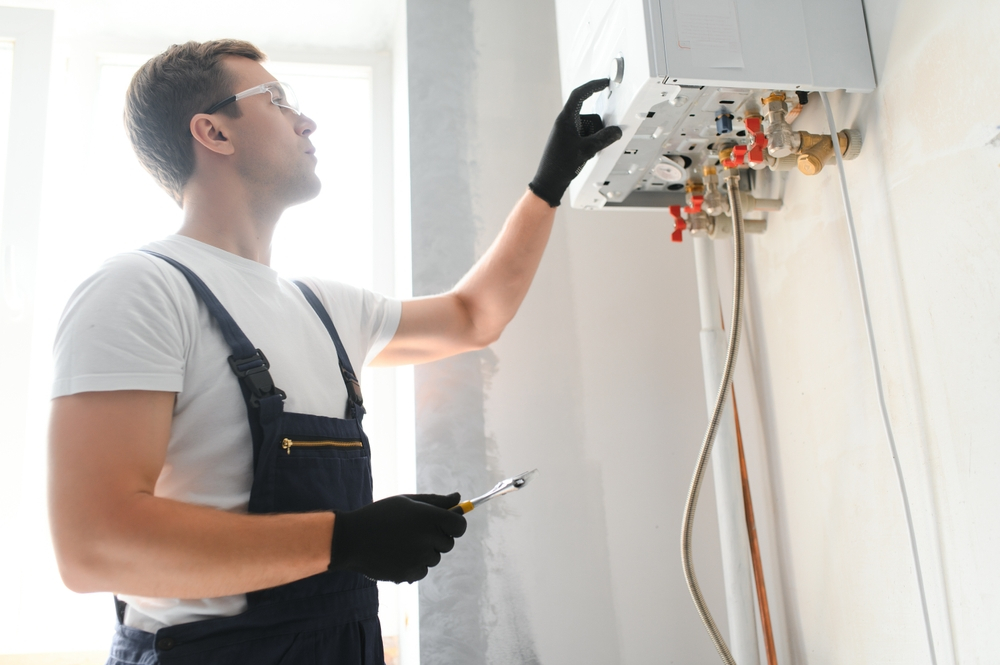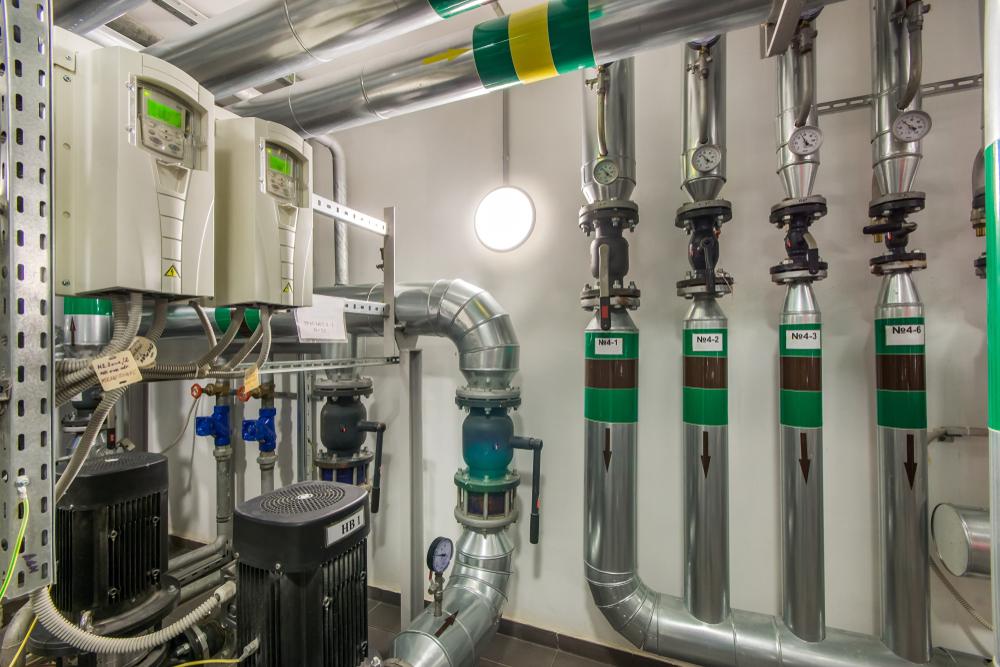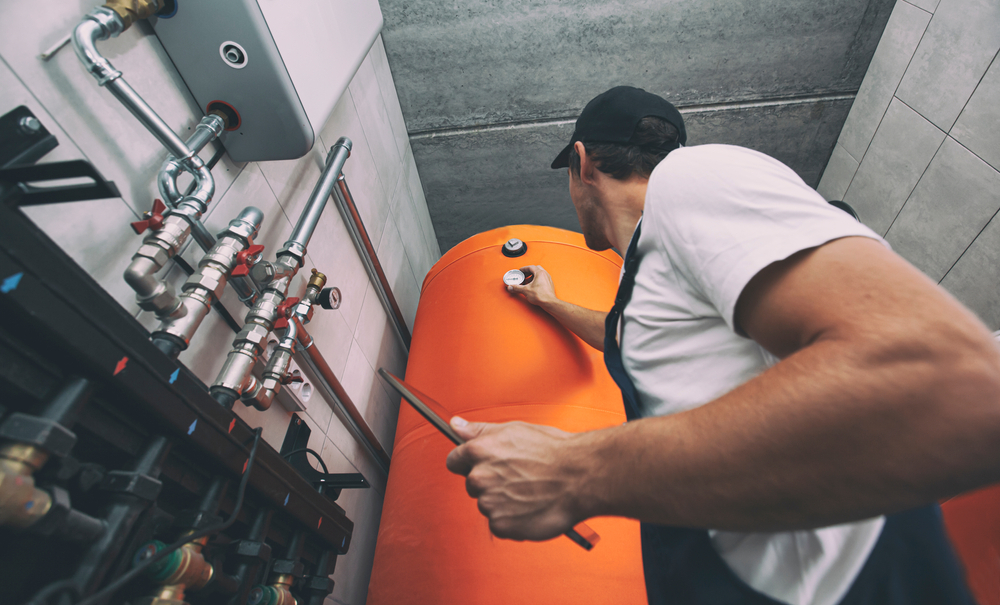One of the little pleasures in life is a hot shower on a cold morning; most of us take this for granted until our water heater breaks down. The inconvenience is instantaneous and aggravating when the hot water runs out. Whether you are repairing an old unit or building a new house, knowledge of water heater installation techniques is absolutely vital. From knowing the advantages of water heaters to the stages in their installation and maintenance, this guide will walk you through the whole procedure. By the time this essay ends, you will be ready to make wise choices on the hot water system of your house.

Benefits of Water Heater Installation
Steady Supply of Hot Water
The most clear advantage of installing a water heater is always availability of hot water. A dependable water heater guarantees that you never run out of hot water when you need it whether for cooking, cleaning, or bathing. In colder climates, where hot water is not merely a luxury but a need, this is especially crucial.
Saves Money on Energy Bills
Since modern water heaters are made to be energy-efficient, your utility expenses may be much lowered. Selecting an energy-efficient model and keeping it maintained correctly will help you to cut your monthly costs and energy consumption. These savings eventually help to cover the water heater’s starting cost.
Increases the Value of Your Home
An updated, effective water heater can raise the value of your house. Knowing it will save them money on energy bills and need less repairs, potential buyers are likely to find a freshly installed, energy-efficient water heater to be a great feature. This might increase the market appeal of your house and enable you to get a higher selling price.
Improves Energy Efficiency
Designed to be far more energy-efficient than older types, newer water heaters are Installation of a contemporary unit will help to lower the carbon footprint of your house and support environmental sustainability. Better energy efficiency also implies that your water heater will run better using less energy to generate the same quantity of hot water.
Reduces the Risk of Water Damage
Older water heaters are prone to leaks and bursts, which may seriously damage your house with water. By installing a new water heater, one lowers this danger since modern appliances are less prone to malfunction. Moreover, contemporary water heaters provide you peace of mind by including safety elements meant to stop such mishaps.
Types of Water Heaters
Making sure you have a consistent supply of hot water fit for your household depends on selecting the correct sort of water heater. The most often used types of water heaters are shown here:
Tank Water Heaters
The most often found kind in houses are tank water heaters. They comprise a big insulated tank filled with hot water till needed. There are several models of these heaters, and selecting the correct capacity will help you to satisfy the hot water consumption in your house without waste of energy.
Advantages:
- Less initial expenses
- easy upkeep and installation
- dependable hot water source
Disadvantages:
- Constant energy consumption to maintain water heated
- Big footprint needing a lot of room.
Tankless Water Heaters
Only when needed do tankless water heaters—also referred to as on-demand water heaters—heat water. Their more energy-efficient design stems from their lack of hot water storage than from tank types. The first cost is considerable, though, and installation can be more difficult.
Advantages:
- energy-efficient since they just heat water as needed
- Small design that saves space
- longer lifetime than models of tanks
Disadvantages:
- Greater starting cost
- Restricted flow rate that could not be enough for simultaneous use across several sites
Hybrid Water Heaters
Tank and tankless systems’ technologies are combined in hybrid water heaters. They heat air using a heat pump, then store the hot water in a tank. More energy-efficient than a conventional tank heater, this kind of water heater can meet heavy demand.
Advantages:
- great energy efficiency helps to lower energy costs.
- Can manage big hot water consumption.
Disadvantages:
- Greater upfront cost
- calls for additional room and correct ventilation.
Solar Water Heaters
Solar water heaters heat water by means of solar energy. Particularly in sunny areas, these environmentally friendly solutions can drastically lower energy expenses. For colder climates and cloud cover, they do, however, call for a backup system.
Advantages:
- ecologically friendly, little carbon impact
- can greatly reduce energy use.
Disadvantages:
- High initial installation cost
- Subject to the state of the weather
Heat Pump Water Heaters
Unlike direct generation of heat, heat pump water heaters transport heat from one location to another using energy. They may greatly cut energy expenditures and are quite efficient. Still, they are most suited in mild to warm environments.
Advantages:
- remarkably very energy-efficient
- Cut running expenses.
Disadvantages:
- More starting cost
- calls for room to allow air movement.

Process of Water Heater
Factors to Consider Before Installation
Several crucial elements have to be taken into account before installing a water heater to make sure you get the correct system for your house.
Size and Capacity
The capacity and dimensions of your water heater should coincide with the hot water consumption in your property. An overly small unit will find it difficult to satisfy demand; an enormous one will waste energy. Choose the appropriate capacity based on your family size, peak use hours, and particular demands.
Fuel Type
Natural gas, propane, electricity, or solar energy can all run water heaters. Fuel choice will affect the running expenses, installation cost, and efficiency of the unit. Though electric types are easier to install and maintain, gas heaters usually heat water faster and are less expensive to run. Although they have better energy efficiency, solar and heat pump choices could have greater upfront expenses.
Energy Efficiency Ratings
Selection of a water heater depends much on energy efficiency. Search for models with high Energy Factor (EF) ratings, which point to improved energy economy. Although more efficient versions could be more costly initially, over time they will save you money on energy bills.
Space Availability
Think about the space your house offers for the water heater installation. Smaller areas would be better suited for tankless and compact types; conventional tank heaters use more room. Certain water heaters, including hybrid versions, also require additional ventilation area.
Cost and Budget Considerations
Your decision-making process much relies on your budget. Although the unit’s upfront cost should be taken into account, remember installation costs, possible energy savings, and long-term maintenance costs. Sometimes paying more upfront results in long-term savings.
Hiring a Licensed Plumber
Installations of water heaters call for several technical skills including plumbing, gas lines, and electrical work. Hiring a certified plumber guarantees correct and safe installation, therefore avoiding possible hazards and guaranteeing compliance with local building codes. Additionally helpful advice on the ideal type and size of water heater for your house might come from a qualified plumber.
Steps for Water Heater Installation
Installing a water heater is a difficult task needing careful design and execution. The main phases of the installation process are listed here.
Choosing the Right Location
Choosing the suitable site comes first in water heater installation. The site should be close to the required utilities (gas or electric supply, and water lines), have enough area for the unit, and be readily reachable for maintenance and repairs. To reduce heat loss in tankless versions, think about ventilation needs and proximity to hot water outlets.
Preparing the Area
If at all possible, you should clean the area by removing the old water heater before installing the new one. This entails draining the old water heater, cutting off the gas line or electricity source, and thereby stopping the water flow. Following all safety measures throughout this stage helps one to prevent mishaps.
Installing the New Water Heater
The new water heater is ready for installation following area preparation. Start by getting the unit in its proper spot and locking it. Check the tank for levelness and stability for tank heaters. Mount tankless models as directed by the manufacturer.
Connecting the Water Lines
Then feed the cold and hot water pipes to the water heater. Make sure leak-free connections by using the suitable fittings and materials. Connect the gas supply line of gas water heaters and use a soap solution to look for leaks. Connect the electrical wiring of electric models following manufacturer recommendations.
Adjusting Temperature and Pressure Valves
Change the thermostat’s temperature after the water and electricity connections are secure. Usually, the advised temperature range is between 120°F and balance energy efficiency and safety by means of Check the pressure release valve as well to make sure it runs as it should and stops tank overflow of extra pressure.
Testing and Checking for Leaks
Turn on the water supply once installed to fill the tank. Make sure the unit runs as it should and look over any connections for leaks. Additionally inspect the gas connections for leakage and check the pilot light operation for gas water heaters. Once happy, switch on the gas or electricity supply to start heating the water.
Disposing of the Old Water Heater
At last, correctly dispose of the old water heater. While some plumbing firms provide disposal services, many towns have certain rules on how old water heaters should be handled. Since many of the components of the previous unit can be utilized again, recycling it is a green choice for the surroundings.
Maintenance and Longevity of Water Heaters
The lifetime and effectiveness of your water heater depend on proper maintenance. Frequent maintenance helps your unit last, performs better, and avoids problems.
Regular Draining and Flushing
Sediment accumulates in the tank’s bottom over time, therefore lowering efficiency and maybe compromising the device. Frequent tank flushing and draining helps to eliminate this silt, therefore guaranteeing effective operation of the water heater. At least this process ought to be followed.
Additional Tips for a Successful Water Heater Installation
These extra suggestions help to guarantee a flawless installation and best operation of your new water heater:
Choose the Right Size
The size of your water heater should be exactly right. An undersized unit could find it difficult to satisfy your household’s hot water demand, which would cause regular hot water running-out. On the other hand, an extra unit will waste energy heating more water than required. Peak demand times and hot water consumption patterns of your family will help you decide the appropriate size. See a specialist to get a wise choice depending on your particular requirements.
Ensure Proper Ventilation
Safely releasing exhaust gases from gas water heaters depends on adequate ventilation. Make sure the installation location has enough airflow and that every venting component is put correctly. Inappropriate ventilation may cause harmful accumulation of carbon monoxide and other gasses, therefore endangering your household’s health.
Check Local Codes and Regulations
Learn local construction rules and guidelines pertaining to water heater installations before installation. Legal as well as safety depend on following these regulations. Expert in these criteria, a professional plumber will make sure the installation satisfies all required criteria.
Consider Noise Levels
Particularly those with heat pumps, water heaters can make noise when running. If noise is a problem, select a model with less running noise or position the unit somewhere the noise would be less disruptive. Putting the unit in a laundry room or basement, for instance, helps reduce noise annoyance.
Plan for Future Maintenance
Think through future maintenance requirements while choosing a location for your water heater. Make sure the vicinity of the unit is reachable for regular inspections, repairs, and cleaning. Enough room around the unit will facilitate maintenance chores and aid to avoid possible problems.
Use Quality Materials
Use premium tools and materials during installation. To guarantee a safe and long-lasting installation, spend in pipes, valves, and strong fittings. Good materials help your water heater to be generally reliable by lowering the chance of leaks and breakdowns.
Test the System Thoroughly
Test the water heater system completely to guarantee it runs as it should following installation. Look for correct water flow, confirm the temperature settings are accurate, and check all connections for leaks. By means of these tests, one may verify the success of the installation and the expected functioning of the item.
Troubleshooting Common Water Heater Issues
Water heaters can occasionally run across problems even with correct installation and care. These are a few typical issues together with some possible fixes:
No Hot Water
Should your water heater fail to provide hot water, the problem may lie in thermostat settings, power supply, or a broken heating element. Look first to see whether the power supply is connected and operating. Make sure the thermostat is turned to the suitable temperature. Look over the heating elements of electric heaters for evidence of wear or damage. Sometimes a specialist may have to replace malfunctioning parts.
Insufficient Hot Water
If you’re running low hot water, the unit’s size or a sediment accumulation may be the cause. Check to see if the water heater is suitable for the demands of your residence. Frequent tank flushing helps to solve sediment accumulation. See a professional to evaluate the performance of the unit and implement required changes should the issue continue.
Water Temperature Fluctuations
Either a broken thermostat or sediment accumulation might cause changing water temps. To guarantee proper configuration of the thermostat, check and change its values. Additionally helping to reduce temperature variations brought on by particles is flushing the tank. Should swings persist, a professional inspection could be required to identify and fix the problem.
Leaking Water Heater
From loose connections to a damaged tank, leaks around the base of the water heater might point to a variety of issues. Examine every connection and fitting for leakage; tighten them as necessary. Should the tank itself be leaking, it could indicate damage or corrosion and may call for a replacement of the device.
Strange Noises
A malfunctioning heating element or sediment accumulation might produce unusual sounds such rumbling or popping. As it heats and flows about the tank, sediment can produce noise. One can help to reduce these sounds by flushing the tank. Should the issue still exist, the heating element might need replacement or examination.

Conclusion
Ensuring a consistent supply of hot water, improving energy economy, and adding value to your house depend on a correctly fitted water heater. Making a wise choice will depend on your knowledge of the many kinds of water heaters and your consideration of important criteria before installation. Following consistent maintenance guidelines can also help your water heater last as expected and perform effectively.
With this guidance, you will confidently negotiate the water heater installation process. Remember to have the water heater routinely maintained, engage a competent plumber for expert installation, and select the correct type and size of heater. These guidelines can help you to enjoy consistent hot water and prevent unanticipated problems or expensive repairs.
Don’t wait till your hot water supply causes issues. Install or upgrade your water heater now to guarantee a comfortable and efficient house for many years to come. Your water heater will deliver continuous hot water, help to save energy, and increase the general value of your house with correct installation and care.
Plumbing Services CA
https://maps.app.goo.gl/31Yt4rhDrainzNJ4A
(279) 203-0765
https://plumbingservicesca.com/
